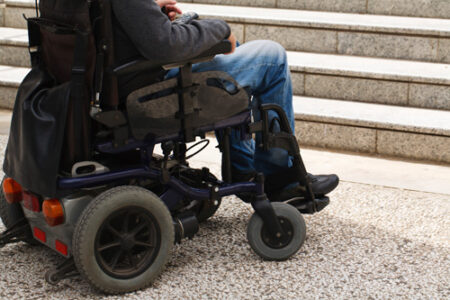
Michigan auto no-fault in crisis – Legislators seek solution
Madonna Walters, MS, RN – Member, MTC Legislative Advocacy & Outreach Committee
Trauma RN, Henry Ford Jackson Hospital, Jackson, MI
In May of 2019, Michigan Governor Whitmer signed a law that dramatically changed Michigan’s Auto No-Fault insurance. This legislation reversed a no-fault law that had stood since 1973. Today, efforts are underway in the Michigan legislature to restore some of the benefits in place prior to the 2019 reform, due to its unintended consequences and devastating effects on patient’s lives.
At the time of the 2019 signing, a press release from Governor Whitmer’s office lauded the auto no-fault reform as “guaranteeing a better auto insurance system for everyone” by assuring better protection for consumers and lower insurance rates. This sounded too good to be true, and it was. The result was a reimbursement system that cut post-acute and home care reimbursement by 45% for auto crash victims, many catastrophically injured, and gutted their care delivery system. It also created a new Medicare-based fee schedule for hospitals and providers caring for car crash victims. The new law went into effect on June 11, 2019, and created chaos for the seriously injured, including those who were paralyzed, brain-injured, ventilator-dependent, or those who simply required a lot of nursing care and at-home rehab during their recovery. That system of care could simply not survive a 45% pay cut.
When the payment reductions went into effect in July 2021, insurance companies quickly interpreted the cuts as applying to incumbent victims as well as those injured after June 11, 2019, when the law itself went into effect. It took a 5-2 decision from the Michigan Supreme Court to rule that the changes in reimbursement did not apply to the 17,000 to 18,000 people injured before the auto no-fault legislation of 2019. For some, this was too late. Take, for example, the case of Brian Woodward, a paralyzed man of 64, who died after a merry-go-round of care shuffling him between nursing homes and multiple acute care hospitals. Prior to the 2019 reform, he had been cared for at home. According to reporting by Chad Livengood of the Detroit News, Woodward died just 90 minutes before the court restored care for those injured before June 11, 2019.
But even after the high court ruling, the health care system designed to care for trauma victims is in a tailspin. Many home care agencies have already shut down or they are no longer taking on new car crash victims. Their business model cannot sustain a 45% reduction in funding for the daily care of victims of catastrophic accidents. Nor is the model tenable for the care they receive during their hospital stays and visits to the emergency room when problems occur.
The crisis at the agency level has left many patients with no one to care for them. In some cases, like 5-year-old quadriplegic Annabelle Marsh, whose story was also reported by Chad Livengood, agencies have continued to provide care at the lower rate, in spite of losing money every month. Family members have stepped in when they could and many have gone bankrupt, leaving their injured family members moved to Medicaid-funded nursing homes. For the catastrophically injured, this has meant many trips back to the emergency department and in some cases, an early death.
Now we have an opportunity to make these models viable. Michigan Senate Bills 530 and 531 would do that. On one hand, they would improve reimbursement rates for post-acute home care, reversing the 45% cuts made in 2019. Victims of catastrophic crash injuries would see improved access to the consistent, high-quality care that they require. On the other hand, the proposed legislation includes increases in the reimbursements to hospitals. With an inadequate funding model, they are straining under the cost of caring for these post-acute patients when health issues arise. Under the proposed legislation, a new non-Medicare fee schedule with fair rates would allow the level of care that everyone expects.
These bills have already passed in the Michigan Senate, prior to the December recess, thanks to 20 Democrats and 4 Republicans. Now we need your help to get these bills through the Michigan House and to the Governor’s desk. Please contact your Michigan Representative as well as the Governor to voice your support for these two bills. Here is a link to a sample letter that you can send to them or paste into a message on their website. This is time-sensitive, as the Michigan Legislature will be back in session in January 2024. If you don’t know the name of your Michigan Representative, use this BallotPedia site to help find them.
Note that while a majority of the Michigan Senate agreed that payment rates to post-acute providers needed to be increased to ensure adequate care for car crash survivors, the bills face an uphill battle with the House and Governor. As reported in Crain’s Detroit Business, the Governor’s office and the Department of Insurance and Financial Services opposed the legislation and have called for a “narrower solution.” A narrower solution may be to cut hospitals out of the deal and focus only on increasing home care and post-acute care.
